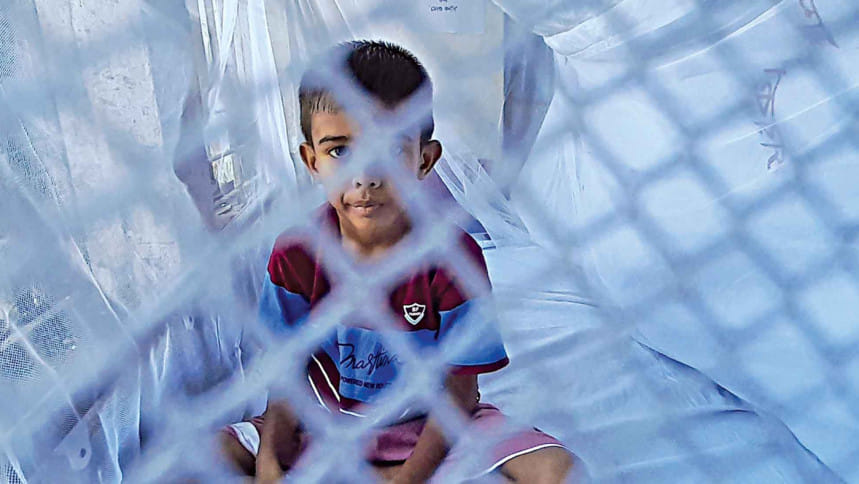Dengue cases cross 28,000, 2nd highest since 2000

The authorities are sufficiently prepared to provide dengue treatment if cases increase further. However, it must be kept in mind that the health ministry can only provide treatment, not kill Aedes mosquitoes.
Dengue has still not loosened its grip on the country, as infections keep piling up. Cases this year reached 28,698 yesterday, the second highest since 2000, when the country witnessed the first-ever outbreak.
According to Directorate General of Health Services (DGHS), at least four dengue patients died, while 896 were hospitalised across the country in 24 hours till yesterday morning.

Experts fear the situation will persist throughout this month, but cases may start decreasing from the beginning or middle of November.
According to DGHS data, of the total 28,698 cases, 12,606 were recorded in just 20 days of October, while 55 out of the 110 deaths were witnessed during the same period.
A total of 1,01,354 people, the highest ever, were hospitalised and 179 died in 2019.
When the first outbreak occurred in 2000, 93 died and 5,551 were infected.
Entomologist Manzur A Chowdhury said the government will have to conduct a massive campaign to destroy Aedes-mosquito breeding grounds and kill adult mosquitoes.
"Everyone will have to spray insecticide in their homes twice a day. Every citizen of the country, not only residents of Dhaka, will have to remain cautious, so that mosquitoes don't bite them," Manzur said.
Rainfall is still being witnessed, so daily dengue infections may not decline till mid-November, he said.
Entomologist Kabirul Bashar said it is essential to conduct crash programmes to control Aedes mosquitoes across the country.
Using mosquito nets is crucial, no matter whether it is day or night, he said, adding that children will have to wear full-sleeved clothes.
Meanwhile, Health Minister Zahid Maleque yesterday said the authorities are sufficiently prepared to provide dengue treatment if cases increase further.
"We have readied Dhaka North City Corporation Hospital, the new wing of BSMMU and Lalkuthi hospital," he said at a programme at Bangladesh Shishu Hospital and Institute.
However, it must be kept in mind that the health ministry can only provide treatment, not kill Aedes mosquitoes, the minister said.
Stressing the need for city corporations and municipalities to kill mosquitoes, Maleque said dengue patients will go down when the Aedes-mosquito population goes down.
At a programme in Dhaka yesterday, Nazmul Islam, director of DGHS' disease control wing, said they are expecting dengue cases to decrease from early next month.
He said many factors are behind the high dengue cases. "This year, the monsoon came late. There has been intermittent rain, barely any torrential rain, then regular rain due to low pressure. These issues have played a very important role."
"We believe no one person can deal with all the impacts of climate change; everyone in the country has to deal with it together… Each citizen has a responsibility to keep the city clean. If we are aware, then of course, breeding areas of mosquitoes will go down, and so will their population," added Nazmul.
Dhaka North City Corporation started a seven-day, anti-mosquito crash programme on Wednesday, which will continue till Tuesday.
Dhaka South City Corporation also started an initiative in five vulnerable wards -- 6, 2, 3, 56 and 15 -- on October 16, which continued till yesterday.
"We are also taking special measures besides the routine work, which include drives around houses of dengue patients," said Md Abu Nasher, public relations officer of DSCC.

 For all latest news, follow The Daily Star's Google News channel.
For all latest news, follow The Daily Star's Google News channel. 



Comments